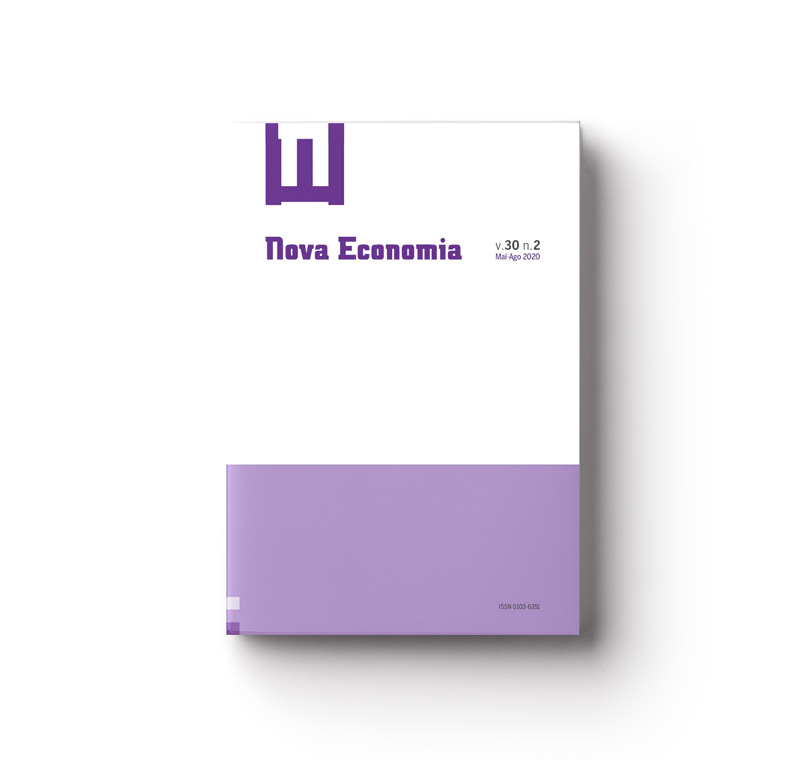Education and smoking behavior in Brazil: decision to smoke and daily cigarette consumption intensity
Abstract
This study analyses the relationship between education and smoking behavior. Our empirical models were estimated using data for Brazilian citizens from the 2008 Special Survey on Tobacco Addiction. We estimated probit, sample-selection, and zero-inflated negative binomial models. Empirical analyses for women and men were conducted separately. We found that higher education levels are associated with lower smoking probability and lower daily consumption intensity.
Downloads
Published
2020-10-04
How to Cite
JUSTUS, M.; SANT’ANNA, E. G.; DAVANZO, E. S.; MOREIRA, G. C. Education and smoking behavior in Brazil: decision to smoke and daily cigarette consumption intensity. Nova Economia, [S. l.], v. 30, n. 2, p. 679–700, 2020. Disponível em: https://revistas.face.ufmg.br/index.php/novaeconomia/article/view/4950. Acesso em: 19 feb. 2026.
Issue
Section
Regular Issue
License
Copyright (c) 2020 Marcelo Justus, Elder Generoso Sant'Anna, Eloá Sales Davanzo, Gustavo Carvalho Moreira

This work is licensed under a Creative Commons Attribution 4.0 International License.
Authors who publish with this journal agree to the following terms:
- Authors retain copyright and grant the journal right of first publication with the work simultaneously licensed under a Creative Commons Attribution 4.0 International License that allows others to share the work with an acknowledgement of the work's authorship and initial publication in this journal.
- Authors are able to enter into separate, additional contractual arrangements for the non-exclusive distribution of the journal's published version of the work (e.g., post it to an institutional repository or publish it in a book), with an acknowledgement of its initial publication in this journal.
- Authors are permitted and encouraged to post their work online (e.g., in institutional repositories or on their website) prior to and during the submission process, as it can lead to productive exchanges, as well as earlier and greater citation of published work (See The Effect of Open Access).




